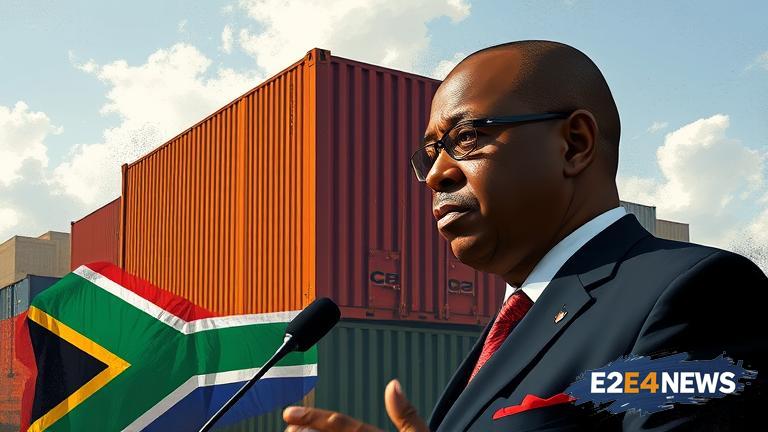South Africa is facing significant economic pressures due to tariffs imposed by the United States, according to President Cyril Ramaphosa. In a recent statement, Ramaphosa acknowledged the strain these tariffs have placed on the country’s economy. The tariffs, which were introduced as part of the US’s trade policies, have affected various sectors, including the steel and aluminum industries. Ramaphosa emphasized that South Africa is not the only country affected by these tariffs, as many other nations are also feeling the pinch. The President’s admission comes as the country’s economy continues to experience sluggish growth, with the latest figures showing a decline in economic activity. The tariffs have resulted in increased costs for South African businesses, making it harder for them to compete in the global market. Ramaphosa has assured the public that his government is working tirelessly to mitigate the effects of the tariffs and to find alternative markets for the country’s exports. The President has also called on the international community to work together to address the issue of trade tariffs, which he believes are a major obstacle to global economic growth. Despite the challenges, Ramaphosa remains optimistic about the country’s economic prospects, citing the resilience and determination of the South African people. The government has implemented various measures to support businesses affected by the tariffs, including providing financial assistance and helping them to diversify their exports. Ramaphosa has also emphasized the importance of regional trade agreements, such as the African Continental Free Trade Area, which he believes will help to boost economic growth and reduce the country’s reliance on international markets. The President’s comments have been welcomed by business leaders, who have been calling for greater support and protection from the government. However, some critics have argued that the government has not done enough to address the issue of trade tariffs, and that more needs to be done to support businesses and protect jobs. The impact of the US tariffs on South Africa’s economy is a complex issue, with many different factors at play. The country’s economy is heavily reliant on exports, and the tariffs have made it harder for businesses to compete in the global market. The government has also faced criticism for its handling of the economy, with some arguing that it has not done enough to address the underlying structural issues that are holding back growth. Despite these challenges, Ramaphosa remains committed to his vision of a prosperous and inclusive economy, and has pledged to work tirelessly to achieve this goal. The President has also emphasized the importance of international cooperation, and has called on other countries to work together to address the global challenges facing the economy. The issue of trade tariffs is a major concern for many countries, and Ramaphosa’s comments have highlighted the need for a coordinated international response. The African Continental Free Trade Area is seen as a key part of this response, and Ramaphosa has pledged to work with other African leaders to make it a success. The agreement has the potential to boost economic growth and reduce poverty across the continent, and Ramaphosa has emphasized its importance for South Africa’s economic future. Overall, the issue of US tariffs on South Africa is a complex and challenging one, but Ramaphosa’s comments have highlighted the need for a coordinated and determined response. The President’s commitment to supporting businesses and protecting jobs is welcome, and his emphasis on international cooperation is seen as a key part of the solution. As the country continues to navigate the challenges posed by the tariffs, Ramaphosa’s leadership and vision will be crucial in shaping the country’s economic future.





